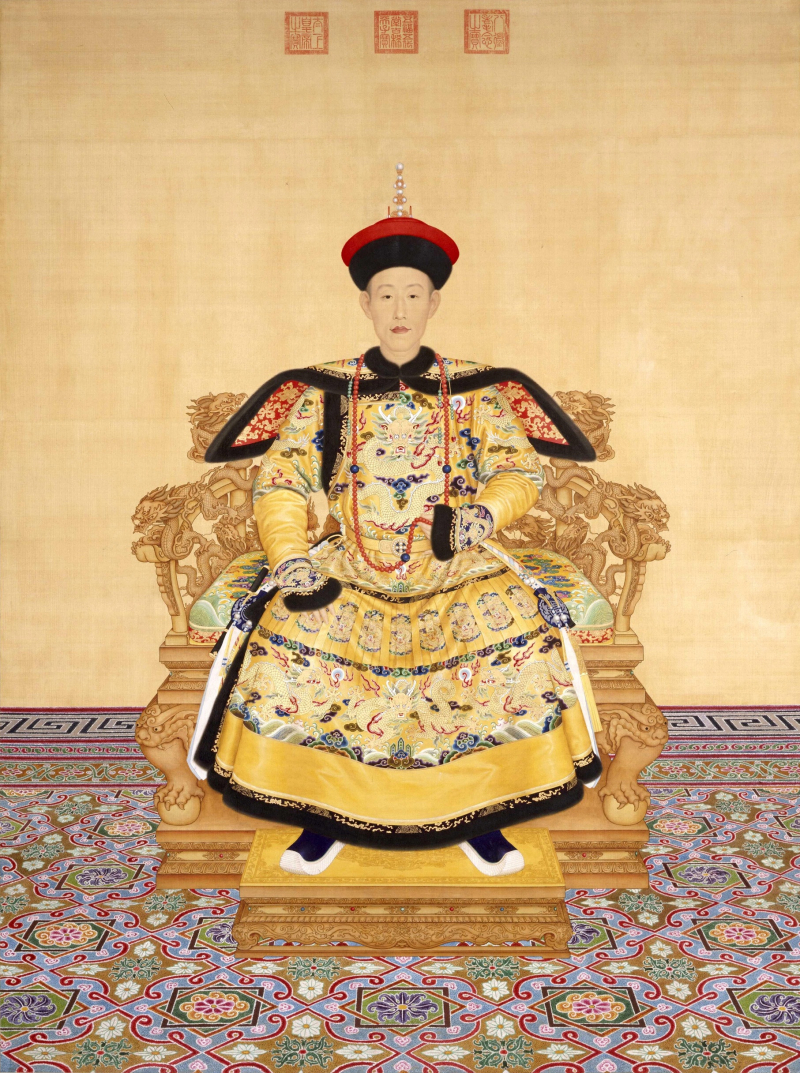Emperor Qianlong (1735 AD to 1796 AD)

Emperor Qianlong, also known as Emperor Gaozong, was the fifth Emperor of the Qing dynasty. He was the fourth son of Emperor Yongzheng, who came to power and ruled China from 1735 to 1796.
After inheriting a flourishing empire, the Qing Empire during its lengthy rule had its most glorious and affluent period, with a sizable population and economy. Emperor Qianlong was a military commander who oversaw military expeditions that significantly increased the dynasty's geographical expansion via conquest and even invasion of Central Asian nations. However, The Qing empire began to fall with corruption and waste of the imperial treasury in the later years of Emperor Qianlong's life and slowly transformed into a stagnant civil society.
The Qianlong Emperor was a tremendous supporter of the arts and of religion when he was in power. He backed Confucianism and Tibetan Buddhism despite a sense of political control. Similar to his grandpa, he also paid for the publication of Siku Quanshu, an encyclopedia aimed to compete with the Yongle Encyclopedia.
In 1796, he abdicated in favor of his son, Emperor Jiaqing. But even after he retired, Emperor Qianlong continued to hold the position of Retired Emperor until his passing in 1799 at the age of 87. He was one of the most powerful and longest-reigning emperors in Chinese history as a result.
However, out of respect for his greatness, Emperor Qianlong was overly careless with his retainers, which contributed to a dramatic rise in despotism and corruption in the court. This began the rapid decline of the Qing Dynasty. And fewer than 50 years after Qianlong's passing, China saw one of its worst humiliations ever as a result of the First Opium War.
In sum, Emperor Qianlong of Qing:
- was the fifth Emperor of the Qing dynasty, came to power, and ruled China from 1735 to 1796.
- was the one who oversaw military expeditions to expand territory through the conquest of Central Asian countries.
- was a huge supporter of the arts and religion that supported Confucianism and Tibetan Buddhism.
- abdicated in favor of his son, Emperor Jiaqing in 1796.
- 50 years after Qianlong's death, the First Opium War struck as China's worst humiliation.















